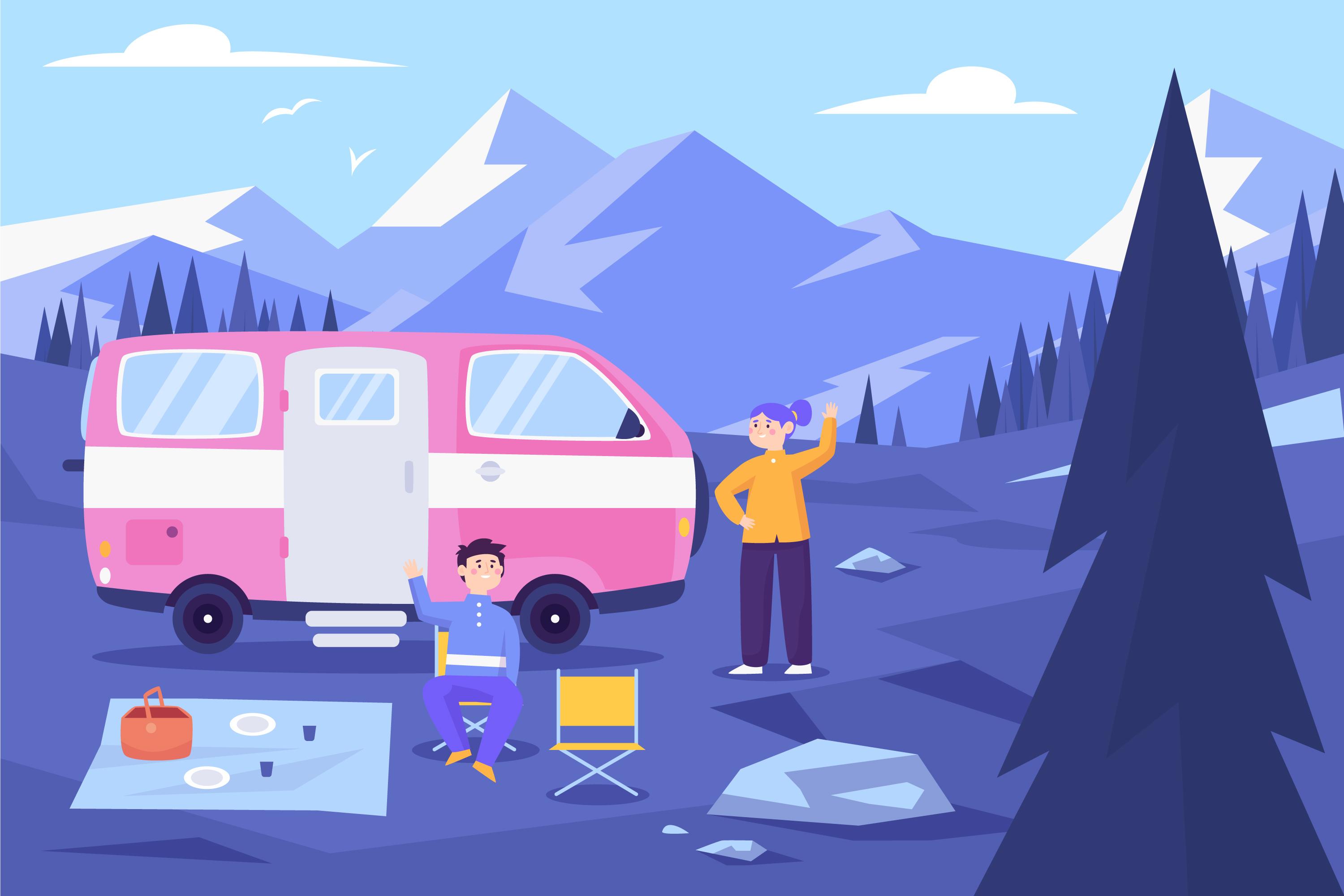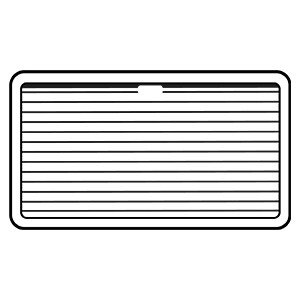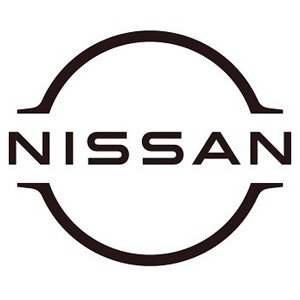- VDM
- 0 likes
- 134 views
- 0 comments

There’s something undeniably special about hitting the road in a campervan. It’s not just a trip—it’s a lifestyle. A rolling home that lets you chase horizons while keeping your creature comforts close. Whether you're a solo traveler chasing golden hour, a family seeking connection, or a remote worker swapping office walls for mountain peaks, campervan travel lets you live on your own terms.
One of the biggest draws of campervan travel is that it’s surprisingly budget-friendly. Forget expensive hotels and dining out every night. Instead, you can:
Cook your own meals in a compact kitchen setup
Sleep under the stars in scenic, off-the-grid locations
Spend your savings on real experiences like kayaking at sunrise or exploring local markets
Enjoy personal space and safety in your own mobile haven
But the real beauty of this lifestyle? It’s the freedom. No check-ins. No rigid itineraries. Want to linger another day by that quiet lake? Do it. Heard about a secret beach from a fellow traveler? Take the turn. From misty forests to vibrant city corners, your route can shift with your mood. That’s the magic—every day is a blank page.
So when you’re mapping out your next escape, don’t just focus on the destination. Think about the ride. With a campervan, the journey becomes the story. You’ll uncover hidden spots, cross paths with unforgettable people, and collect moments that last a lifetime.
The only thing left to ask is—where will the road take you?
.jpg)
Getting started with campervan travel
Thinking about diving into the world of campervan travel? The journey begins long before you hit the gas—it starts with smart preparation and a bit of strategy. One of the most important campervan tips for beginners is to make the most of limited space. Think vertically and pack efficiently. Use tools like:
Stackable containers – Maximize storage by building upward.
Collapsible cookware – Save space without sacrificing functionality.
Packing cubes – Keep your belongings organized and easy to access.
Another game-changer? Prepping meals in advance. It reduces stress, saves time, and lets you focus on the road—not on what’s for dinner.
Planning your first trip involves more than just picking a scenic route. You’ll need to:
Map out your journey – Know where you’re going and how long it’ll take.
Choose the right campsites – Look for solid reviews, essential amenities, and proximity to attractions.
Check your gear – Make sure everything is functional and suited to your travel style.
Start small. A weekend getaway is perfect for testing the waters. Mistakes will happen—and that’s part of the charm. Before long, you’ll be navigating like a seasoned road warrior.
Choosing and converting a campervan
Shopping for your first van? Looks aren’t everything. When buying a campervan, focus on practical features that impact your comfort and travel experience. Consider:
Size – Will it fit your travel needs and parking options?
Fuel economy – Important for long-distance travel and budget planning.
Built-in features – A mini kitchen or bathroom can significantly enhance comfort.
Deciding between new or used? That depends on your budget and how hands-on you want to be. If you enjoy DIY projects, a campervan conversion offers the chance to create a space that reflects your personality—whether minimalist or fully equipped.
If you’re planning to go off-grid, energy independence is essential. Here’s how to stay powered and comfortable:
Leisure battery – Keeps essentials running without draining your main battery.
Solar panels – Provide renewable energy and reduce reliance on campsite hookups.
Insulation and heating – Crucial for cold-weather travel; a compact heater and proper insulation can turn a freezing night into a cozy retreat.
That’s when your van stops being just a vehicle—and starts feeling like home.
Legal and insurance requirements for campervans
Before you hit the road, make sure you’ve covered all legal and insurance requirements for campervans. Insurance is more than a formality—it’s your safety net. Look for specialized policies that offer:
Coverage for minor and major incidents – From scrapes to breakdowns.
Gear protection – Safeguard your equipment and valuables.
Emergency lodging – A lifesaver if you’re stranded far from home.
Beyond insurance, ensure your van is:
Properly registered – Compliant with your country’s vehicle regulations.
Up to code with local travel laws – Requirements may vary by region.
Equipped with necessary safety features – Some areas may require emissions checks or specific modifications.
A little research now can save you a lot of trouble later. Once the paperwork is sorted, you’re free to focus on what really matters: the open road, the freedom, and the adventure ahead.
Planning Your first campervan trip
Your first campervan trip is more than just a vacation—it’s a rite of passage. Choose a route that suits your pace and personality. Whether it’s a coastal drive or a mountain escape, plan your stops and look for campsites that offer:
Essential amenities – Showers, power hookups, and clean facilities.
Pet-friendly options – If you’re bringing a furry companion.
Proximity to attractions – So you can explore without long detours.
Don’t forget to check the weather. Packing layers and waterproof gear can make all the difference when conditions change unexpectedly.
Short trips are ideal for beginners. They allow you to test your setup, adjust your gear, and discover what’s truly essential. You’ll quickly learn what you can live without—and what you can’t. As your confidence grows, so will your curiosity. Soon, you’ll be venturing farther, discovering hidden gems, and collecting stories you’ll tell for years.
The road’s waiting. Ready to answer the call?

Power and utilities for off-grid travel
Going off-grid isn’t just about escaping the crowds or chasing scenic views—it’s about being fully prepared. When you’re far from civilization, power and sanitation become essential. A self-contained campervan gives you the freedom to explore remote destinations while keeping the comforts of home close at hand. But to truly thrive off-grid, you need to plan ahead—especially when it comes to energy and waste management.
At the core of any off-grid campervan setup are two essential components: leisure batteries and solar panels. Together, they create a dependable energy system that powers your lights, keeps your fridge running, and charges your devices—even when you’re miles from the nearest plug. As more travelers seek independence and sustainability, these self-sufficient systems are becoming the go-to choice for eco-conscious adventurers.
Using a leisure battery for onboard power
The leisure battery is your campervan’s dedicated power source for everyday living. Unlike the starter battery, which is only used to start the engine, the leisure battery is designed to power your living space—everything from LED lighting and USB ports to your fridge and water pump.
Picture this: you’ve just parked at a remote mountain pass, with no power outlets in sight. Thanks to your charged leisure battery, you can:
Cook dinner using electric appliances or a powered stove
Light up your space with energy-efficient LEDs
Charge your devices like phones, cameras, and laptops
Stay warm or cool with a small fan or heater
This kind of energy independence transforms off-grid travel—making it not only possible but also comfortable and enjoyable.
Installing solar panels for energy independence
To take your power setup to the next level, consider installing solar panels on your campervan. These panels harness sunlight and convert it into electricity, which is stored in your leisure battery. The result is a renewable, low-maintenance energy source that keeps your essentials running—no matter how far you roam.
On a sunny day, a well-sized solar setup can:
Run your fridge continuously
Charge multiple devices simultaneously
Power small appliances like fans or lights
Replenish your battery for overnight use
Solar energy creates a self-sustaining loop—ideal for long-term travelers who want to stay off-grid longer and reduce their environmental impact. With solar power, you’re not just traveling—you’re doing it sustainably and on your own terms.
Compost toilets and sanitation options
Let’s talk about something less glamorous but absolutely essential: sanitation. A compost toilet can be a game-changer for off-grid living. Unlike chemical toilets, composting systems separate liquids and solids and use natural decomposition to manage waste—no harsh chemicals, no frequent dumping.
When you’re deep in the forest or hours from the nearest restroom, a compost toilet allows you to:
Stay clean and comfortable without relying on public facilities
Extend your time off-grid without worrying about waste disposal
Reduce your environmental impact by avoiding chemical waste
Travel responsibly with a more sustainable sanitation solution
Choosing a composting toilet means more freedom, more comfort, and a lighter footprint. It’s not just about convenience—it’s about making smarter, more sustainable choices that enhance your journey.
Cooking and living comfortably on the road
Life on the road can be extraordinary—if your campervan setup is dialed in. Whether you're whipping up a quick meal or winding down for the night, comfort and convenience should always come first. That means choosing compact, multi-functional kitchen tools, investing in cozy bedding, and embracing smart storage solutions. With the right gear, your campervan becomes more than just a vehicle—it transforms into a comfortable, mobile home. Suddenly, every trip feels less like a temporary escape and more like a sustainable lifestyle.
Essential campervan kitchen equipment
Cooking in a campervan is all about maximizing limited space. Every item in your campervan kitchen setup should serve multiple purposes while being compact and easy to store. Efficiency is key.
Here are a few must-have items that combine function with space-saving design:
Collapsible pots and kettles – Flatten down when not in use, saving valuable storage space.
Nesting pans – Stack neatly to reduce clutter without compromising on cooking capability.
Foldable utensils – Easily stored in drawers or containers, keeping your kitchen organized.
Take the collapsible kettle, for example. It may seem like a small detail, but it delivers your morning coffee without taking over your counter. A well-planned kitchen setup doesn’t just make cooking easier—it brings a sense of home to even the most remote campsites.
Improving sleep with a campervan mattress topper
Let’s be honest—van life isn’t always luxurious. But with the right campervan mattress topper, it can feel surprisingly close. Whether you choose memory foam or a gel-infused option, a quality topper adds a layer of comfort that your back—and your mood—will thank you for.
Imagine waking up without the usual stiffness, feeling refreshed and ready to hit the road. That extra cushioning? It’s a small upgrade that delivers big results. Better sleep leads to better days, and that’s a win every time.
Maximizing space with campervan storage solutions
In a campervan, every inch counts. That’s why smart campervan storage solutions are essential. The trick is to use every surface, go vertical, and think creatively.
Consider these space-saving ideas:
Hanging organizers – Ideal for storing toiletries, kitchen tools, or small accessories on doors and walls.
Magnetic spice racks – Attach to cabinets or metal panels to keep spices accessible and tidy.
Over-the-door hooks – Great for hanging jackets, towels, or bags without taking up floor space.
Under-seat compartments and collapsible bins – Perfect for stashing gear out of sight while keeping it within reach.
Staying organized not only frees up space—it makes your van feel more open, calm, and livable. Less clutter means less stress, and that’s exactly what road life should be about.
Collapsible furniture for indoor and outdoor use
When space is tight, flexibility becomes your best friend. That’s where collapsible furniture shines. These versatile pieces adapt to your needs, whether you're inside the van or enjoying the outdoors.
Here’s how collapsible furniture can enhance your van life:
Foldable tables – Provide a surface for eating or working, then fold away when not in use.
Stackable stools – Serve as both seating and storage, maximizing utility.
Compact chairs – Ideal for relaxing by the fire or staying cozy inside during bad weather.
Picture this: you're parked beside a serene lake, sipping coffee at your fold-out table as the morning sun rises. Moments later, everything is packed away and you're back on the road. These space-saving essentials extend your living area beyond the van—and make every stop feel like home.
Finding places to stay
Setting off in a campervan? That’s when the real journey begins. But where you choose to park overnight can truly shape your experience. Whether you're seeking solitude in the wilderness or prefer staying close to urban life, a bit of research into campervan parking spots and campsites can make all the difference. With thoughtful planning, you’ll discover locations that combine comfort with adventure—turning each stop into a memorable part of your journey.
.jpg)
Wild camping: Rules, tips, and best practices
There’s a unique charm to wild camping. Picture waking up to a sunrise over a misty valley or falling asleep under a sky full of stars—far from the noise and crowds. It’s not only budget-friendly but also a powerful way to connect with nature. However, freedom comes with responsibility.
Wild camping regulations vary significantly between countries—and even between regions within the same country. Always check local laws before setting up camp. Most importantly, follow the golden rule: Leave No Trace. This means treating the land with care and respect. In practice, that includes:
Taking all your rubbish with you – never leave waste behind.
Avoiding disturbance to wildlife – keep noise and activity to a minimum.
Leaving the area as you found it—or better – restore the site before you leave.
By following these principles, you help preserve the wild camping experience for future travelers—and protect the natural beauty that makes it so special.
Aires in Europe: What they are and how to use them
If you're exploring Europe by campervan, it’s essential to understand Aires. These designated motorhome parking areas are found throughout cities, towns, and highways—offering a simple, cost-effective way to rest overnight. Aires are especially popular in camper-friendly countries like France and Germany, where infrastructure supports van travel.
Most Aires offer basic amenities such as:
Fresh water for refilling your tanks.
Waste disposal for grey and black water.
Electricity hookups (available at some locations).
They’re ideal for short stays and quick stopovers, helping you travel farther without breaking the bank. If you're planning a campervan Europe itinerary, knowing how to find and use Aires can streamline your journey and enhance your flexibility.
Think of Aires as no-fuss, budget-friendly stopovers that keep your adventure moving forward—efficiently and comfortably.
Budgeting and cost management
Let’s be honest—financial stress has no place on your campervan adventure. That’s why mastering budgeting and cost management isn’t just helpful—it’s essential. Whether you're planning a weekend escape or a months-long road trip, a solid financial plan can mean the difference between smooth cruising and unexpected detours.
Start by estimating your daily or monthly expenses. Consider key categories such as:
Fuel – One of the biggest recurring costs, especially on long routes.
Food – Groceries and occasional dining out.
Campsite fees – Vary widely depending on location and amenities.
Unexpected expenses – Repairs, tolls, or spontaneous activities.
With a well-structured budget, you can enjoy the journey without constantly checking your bank balance. But remember, budgeting isn’t about restriction—it’s about intention. It’s about making smart choices that enhance your experience, not limit it.
Planning to cross borders or explore new regions? Research local costs in advance. For example, fuel in Norway can cost nearly double compared to Poland. Knowing this helps you allocate funds wisely, avoid surprises, and focus on what really matters: the adventure ahead.
Estimating Your campervan travel budget
Creating a realistic campervan travel budget starts with identifying your core expenses. These typically include:
Fuel – Based on distance and fuel efficiency.
Groceries – Daily food and drink needs.
Campsite or parking fees – Depending on your overnight choices.
Maintenance and repairs – Routine upkeep and unexpected fixes.
But your travel style significantly influences your budget. Are you wild camping in remote areas or staying in full-service city campgrounds? Each choice affects your daily spend. Keeping a daily expense log can be incredibly revealing—it helps you stay accountable and identify spending patterns that inform smarter decisions.
Consider this: traveling through Europe from the lavender fields of southern France to Norway’s rugged coastline is a dream. But the costs? Not so dreamy. For instance, a night at a Swiss campsite might cost twice as much as one in Portugal. By factoring in these regional price differences, you can avoid budget blowouts and travel smarter.
A good budget doesn’t restrict you—it empowers you to explore with confidence and peace of mind.
Saving money with off-season travel strategies
Looking to stretch your travel funds? Off-season travel might be your best strategy. During quieter months, you’ll often enjoy:
Lower prices on campsites, fuel, and attractions.
Fewer tourists, offering a more peaceful and authentic experience.
Greater availability of popular spots without the crowds.
Unique seasonal landscapes that differ from peak-season views.
However, off-season travel isn’t without its challenges. You may encounter:
Limited campsite availability – Some may close or reduce services.
Unpredictable weather – Especially in mountainous or coastal regions.
That’s why planning ahead is key. Take campervan travel in Chile as an example. Visiting during the shoulder seasons—spring or autumn—offers breathtaking scenery without the crowds or high prices. But to make the most of it, plan your route and book essential stops in advance.
Ultimately, off-season travel is about flexibility and embracing the unexpected. Be open to detours. Welcome surprises. Some of the best travel stories come from the unplanned. If you’re ready to save money and dive deeper into the places you visit, the road less traveled might just be the one worth taking.
Staying safe and connected
There’s nothing quite like the freedom of the open road in a campervan—chasing sunsets, discovering hidden gems, and bringing the comforts of home along for the ride. But while the adventure is thrilling, safety and staying connected are not optional—they're essential. Whether you're weaving through city traffic or venturing deep into the wilderness, being prepared can turn a potential mishap into just another story for the campfire.
Safety goes beyond obeying traffic laws. It’s about foresight, preparation, and having the right tools at your fingertips. In this section, we’ll explore practical campervan safety tips and highlight how a few smart tech solutions can make your journey not just safer—but smoother and more enjoyable too.
Campervan safety tips for all conditions
Solid campervan safety starts before the engine even hums to life. Whether you're navigating the winding roads of the Lake District or inching through tight urban alleys, a little groundwork can go a long way. These tips are designed to help you stay safe—wherever the road leads.
1. Know Your Vehicle
Get familiar with your van. It’s not just a bigger car—it’s a whole different beast. Heavier, taller, and with a wider turning radius, it demands a different driving mindset. Braking takes longer. Corners need more care. And blind spots? They’re no joke. Learn your van’s height, weight, and turning limits. Knowing your clearance can save you from a very expensive run-in with a low bridge.
2. Monitor the Weather
A sunny morning can quickly turn into a stormy afternoon. Icy roads, heavy rain, or strong winds can make driving treacherous. Always check the forecast before setting off—and don’t hesitate to delay or reroute if conditions look dicey. Better safe than stranded.
3. Secure the Interior
Inside the van, safety starts with order. Anything loose can become a projectile if you brake suddenly or swerve. Secure everything—pans, electronics, even that coffee mug.
4. Pack an Emergency Kit
Don’t skimp on your emergency kit. When the unexpected hits, you’ll be glad you didn’t cut corners. Make sure you have:
A well-stocked first aid kit – for minor injuries and emergencies.
Reliable flashlight – plus spare batteries for nighttime visibility.
Jumper cables – to handle surprise battery failures.
Basic tools – such as a wrench, screwdriver, and pliers for quick fixes.
Reflective triangle and high-visibility vest – for roadside safety.
Useful campervan travel apps for navigation and planning
Your smartphone is more than just a camera or music player—it’s your co-pilot. With the right campervan travel apps, you can navigate smarter, plan better, and stay connected even in the middle of nowhere.
Navigation essentials
Start with the basics. Google Maps and Waze are must-haves. They steer you around traffic, suggest faster routes, and flag road hazards in real time. In unfamiliar territory, those alerts can be a lifesaver.
Finding campsites and Parking
Need a place to park for the night? These apps are invaluable:
Park4Night – Discover remote spots and hidden gems shared by fellow travelers.
Campercontact – Find full-service campsites with reviews, photos, and tips.
Staying connected
Reliable internet access is key for working, streaming, or checking in with loved ones. These apps help you stay online:
WiFi Map – Locate nearby Wi-Fi hotspots, even in remote areas.
OpenSignal – Check mobile signal strength and coverage maps.
Planning Your journey
For those who love to plan, these apps act like a digital travel agent:
Roadtrippers – Chart your route, discover attractions, and manage stops.
TripIt – Organize reservations, itineraries, and budgets in one place.
Before you hit the road, load up your phone with these digital essentials. You never know—your favorite app might be the one that saves your trip.
Popular campervan travel destinations
Embarking on a journey by campervan around Europe is more than just a travel choice—it’s a lifestyle. The blend of freedom, spontaneity, and deep cultural immersion makes it irresistible. Picture yourself gliding past Spain’s golden coastlines or navigating Norway’s dramatic fjords. With a campervan, the continent becomes your playground—no rigid itineraries, no crowded trains. Just you, the road, and endless possibilities.
One of the biggest perks? Border-hopping is a breeze. Many European countries welcome vanlifers with free camping areas and well-equipped sites. It’s not just about where you’re going—it’s about how you get there. That’s why Europe remains a favorite for both seasoned nomads and curious first-timers.
Whether you're sipping Bordeaux in a French vineyard, dancing through Berlin’s nightlife, or finding stillness beside a Swiss lake, traveling by campervan turns every stop into a story. Each mile brings new faces, unexpected detours, and memories that stay with you long after the engine cools.
Exploring Europe by campervan
Planning a campervan Europe adventure? Buckle up—it’s going to be unforgettable. This isn’t just travel; it’s a chance to slow down, veer off course, and discover hidden gems. The beauty lies in the freedom to stop wherever curiosity leads.
Europe’s roads are legendary. From Portugal’s wild Atlantic coast to the serpentine passes of the Alps, every turn reveals a postcard view. Countries like France and Spain are especially welcoming, offering:
Free overnight parking spots for campervans
Luxury campsites with full amenities
Well-maintained road networks ideal for long drives
Scenic routes that make the journey as rewarding as the destination
Craving adventure? Scandinavia’s raw wilderness and midnight sun await. Prefer culture? Central Europe’s gems—Prague, Vienna, Budapest—offer rich history and irresistible charm. Whether you're chasing sun in the south or silence in the Swiss hills, Europe by campervan is a journey of constant wonder.
Campervan travel in the UK
Travelling the UK by campervan feels like flipping through the pages of a classic novel. Rolling hills, misty moors, and seaside cliffs set the scene, while quaint villages and ancient castles add a touch of magic. It’s a cozy, scenic way to explore Britain’s timeless charm.
One major advantage? The UK is compact and packed with family-friendly campsites and attractions. You could start your morning in the Lake District and end your day with fish and chips on the Cornish coast. Highlights include:
The Cotswolds with its honey-stone cottages
The Scottish Highlands offering wild, rugged beauty
Historic castles and interactive museums for all ages
Coastal towns perfect for beach days and seafood feasts
And the kids? They’ll love it. Castles to climb, museums to explore, beaches to run wild on—it’s a playground of history and nature. Just a tip: the weather can be unpredictable. If you're heading out in winter, make sure your campervan is insulated and toasty. You’ll be glad you did.
Campervan travel in the USA
Dreaming of the open road? Campervan travel in the USA is the ultimate way to experience the country’s vast and varied landscapes. From coast to coast, the U.S. offers a front-row seat to everything from natural wonders to cultural icons.
This country was built for road trips. With thousands of miles of highways and a huge network of RV parks and campgrounds, planning your route is half the fun. Top routes and destinations include:
Pacific Coast Highway – stunning ocean views and coastal towns
Rocky Mountains – alpine beauty and outdoor adventures
New Orleans – jazz, culture, and Southern charm
Route 66 – a nostalgic journey through Americana
And then there are the national parks—America’s crown jewels. Imagine waking up to a sunrise over the Grand Canyon or falling asleep under the stars in Joshua Tree. These parks offer more than views—they’re full of trails, wildlife, and soul-stirring moments. With your home on wheels, every detour becomes part of the adventure.
Campervan travel in New Zealand
New Zealand? It’s a campervan dream come true. With jaw-dropping scenery, a traveler-friendly vibe, and a manageable size, campervan travel in New Zealand is one of the best ways to dive into the country’s natural beauty and rich culture.
From the snow-dusted peaks of the Southern Alps to Rotorua’s steaming geothermal pools, the landscapes are as varied as they are breathtaking. Travel is made easy with:
Well-maintained roads and scenic drives
Abundant campsites across both islands
Freedom camping zones for off-grid stays
Adventure hubs like Queenstown and Lake Tekapo
Thanks to a welcoming attitude toward vanlifers, you can travel on your own terms. Just be sure to follow local rules and leave no trace. With your campervan as your cozy base, you’re not just visiting New Zealand—you’re living it, one epic view at a time.
Campervan travel in Chile
Craving something wild and off the grid? A campervan journey through Chile is your ticket to one of South America’s most awe-inspiring landscapes. From the otherworldly Atacama Desert to the glacier-carved fjords of Patagonia, this country is made for explorers.
What sets campervan travel in Chile apart is the access it gives you to remote, untouched corners of the world. Whether you're winding down the Carretera Austral or camping near the Pacific, Chile’s growing infrastructure supports your journey with:
Expanding road networks through diverse terrains
Emerging campervan services and rental options
Opportunities for wild camping in many regions
Unforgettable natural backdrops at every stop
If solitude and raw nature are what you’re after, you’ll find them here. Wild camping requires planning and grit, but the payoff is immense: waking up to crashing waves or snow-capped peaks with no one else in sight. A campervan trip through Chile isn’t just travel—it’s a full-blown adventure into the wild soul of South America.
Specialized campervan travel styles
Specialized campervan travel isn’t just about getting from point A to B—it's about crafting a journey that reflects your lifestyle. Whether you're a family seeking quality time, a pet lover who won’t leave their furry friend behind, or a digital nomad chasing freedom and fast Wi-Fi, vanlife empowers you to explore on your own terms.
Each travel style comes with its own unique needs. You might be baby-proofing every corner, converting a nook into a mobile office, or creating a cozy den for your dog. With thoughtful planning and a touch of creativity, your campervan becomes more than just a vehicle—it becomes your rolling sanctuary, a base for adventure, connection, and discovery.
Traveling with children: Comfort and safety tips
Taking the kids on a campervan trip? It’s a recipe for unforgettable memories and family bonding. But let’s be honest—it takes preparation to keep things smooth. The VW Campervan is a favorite among families for its spacious interior and kid-friendly features.
To ensure a safe and enjoyable journey, consider the following:
Entertainment essentials: Pack coloring books, compact games, and pre-downloaded movies for areas with no signal.
Safety checks: Secure child seats properly, lock windows, and store sharp objects out of reach.
Declutter: A tidy van reduces hazards and helps maintain parental sanity.
When selecting campsites, opt for family-friendly locations with open fields, nature trails, or playgrounds. These give kids space to explore while you relax. With the right setup, your campervan adventure can become a cherished family tradition—full of laughter, learning, and lasting memories.
Traveling with pets: What to pack and plan for
Leaving your pet behind? Not an option. Fortunately, a pet-friendly campervan trip is entirely possible with a bit of extra planning to keep everyone—tails included—happy.
Here’s what to pack for your furry travel companion:
Safety gear: A secure crate or harness for travel.
Feeding supplies: Collapsible bowls for food and water.
Comfort items: A soft bed or blanket to help your pet feel at home.
Care essentials: Waste bags, grooming tools, and any necessary medications.
Before hitting the road, research pet-welcoming campsites and rest stops. Many now offer dog parks, walking trails, and even pet-wash stations. One traveler shared how their dog loved the beach trails at a Cornwall campground—proof that pets can enjoy the journey just as much as you do.
Embracing the digital nomad lifestyle in a campervan
Craving more than just a new view from your desk? The digital nomad lifestyle in a campervan offers a transformative way to live, work, and explore. A van road trip isn’t just a break from routine—it’s a lifestyle shift.
To stay productive and connected on the road, equip your van with:
Reliable mobile hotspot: Your primary connection to the digital world.
Signal booster: Essential for remote areas with weak reception.
Solar-powered chargers: Keep your devices running off-grid.
Use apps like iOverlander and Park4Night to find quiet, Wi-Fi-friendly spots—perfect for Zoom calls or deep-focus work. And don’t forget to document your journey. Whether through a blog, vlog, or photo journal, sharing your experience can be both inspiring and therapeutic. One remote designer shared how working lakeside in the Lake District reignited their creativity and helped them escape burnout.
If you’re ready to blur the lines between work and wanderlust, your campervan might just be the perfect mobile office. The road is calling—where will it take you?
Enhancing the campervan experience
Planning a campervan adventure? It’s more than just a road trip—it’s a lifestyle rooted in freedom, spontaneity, and discovery. While the open road offers endless excitement, what truly elevates the experience is the people you meet along the way. Engaging with fellow travelers transforms a simple getaway into an unforgettable journey. Sharing stories, exchanging tips, and forming connections are what make vanlife truly special.
Becoming part of the campervan community opens the door to a world of inspiration and support. Whether you're a seasoned nomad or just starting out, connecting with others can spark new ideas and offer valuable insights. From bustling online forums filled with travel hacks to spontaneous meetups at scenic campsites, this community is a rich source of knowledge and camaraderie. And when you need help or encouragement, it’s often just a message—or a campfire—away.
But here’s where the real magic lies: insider knowledge. Being part of the community gives you access to hidden gems—secluded spots, clever storage solutions, and practical vanlife tricks that make life on the road smoother. So as you plan your next journey, think beyond the map. Think about the people you’ll meet, the stories you’ll hear, and the community you’ll become a part of. Because sometimes, the best part of the trip isn’t the destination—it’s the connection.
.jpg)
Keeping a campervan travel journal
One of the most rewarding aspects of camper travel is keeping a journal. It’s more than a list of places visited—it’s a living, breathing record of your journey. A space to reflect, create, and capture the fleeting moments that photos often miss.
Your campervan travel journal can take many forms:
A weathered notebook tucked in your glovebox for quick notes and sketches.
A digital blog updated from a roadside café to share your adventures with others.
Voice memos recorded under a starlit sky to capture thoughts in the moment.
The key is consistency. Jot down daily highlights, sketch that unforgettable view, or tape in a ferry stub from a remote island. Over time, these fragments come together to tell a story that’s uniquely yours.
Beyond memories, your journal becomes a practical tool. Use it to:
Track scenic routes worth revisiting.
Note campsite pros and cons for future reference.
Record packing lessons learned the hard way.
Next time you hit the road, you’ll have a personalized guide at your fingertips. Start writing—because remembering where you’ve been is just the beginning. It’s about deepening your connection to the journey itself.
Joining the campervan community and vanlife culture
Stepping into the campervan community and embracing the vanlife culture can completely transform your travel experience. This is more than just travel—it’s a movement. One that celebrates freedom, simplicity, and the thrill of exploration. And when you connect with others who share that mindset, the journey becomes even more meaningful.
The vanlife culture is not just a trend—it’s a way of living with intention. Whether you’re:
Mingling at a van rally with like-minded adventurers,
Chatting in an online group about gear and destinations,
Trading stories at a roadside stop over coffee,
—these moments often lead to lasting friendships and invaluable advice. A casual conversation might point you to a hidden waterfall or teach you a clever fix for your solar setup.
And don’t forget—you have something to offer, too. Share your favorite routes, campsite gems, or maintenance tips. Your experience could be the key that helps someone else hit the road with confidence. As you continue your journey, think about how you can give back. Because when you contribute, you’re not just enriching your own adventure—you’re helping shape the road ahead for the entire community.





















Comments (0)